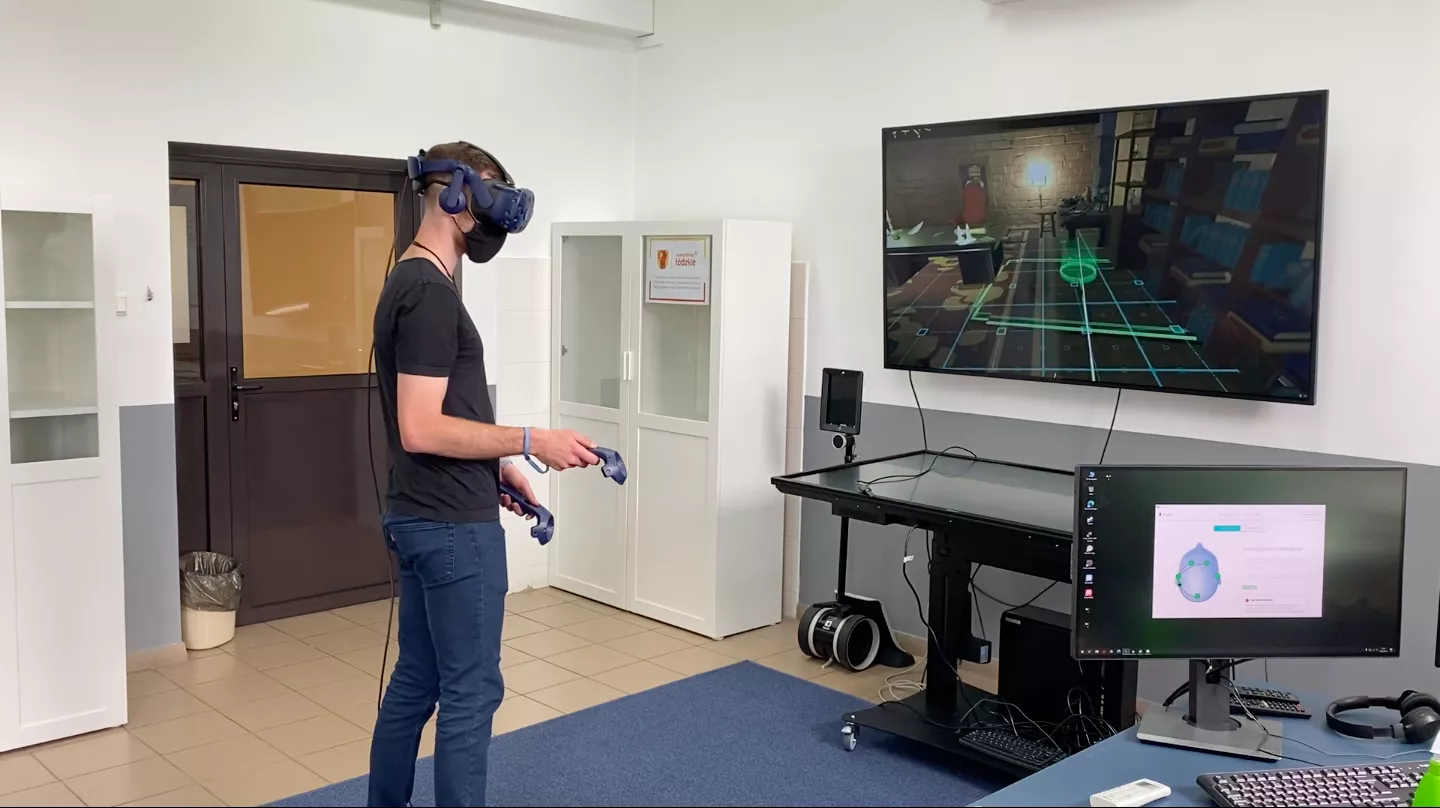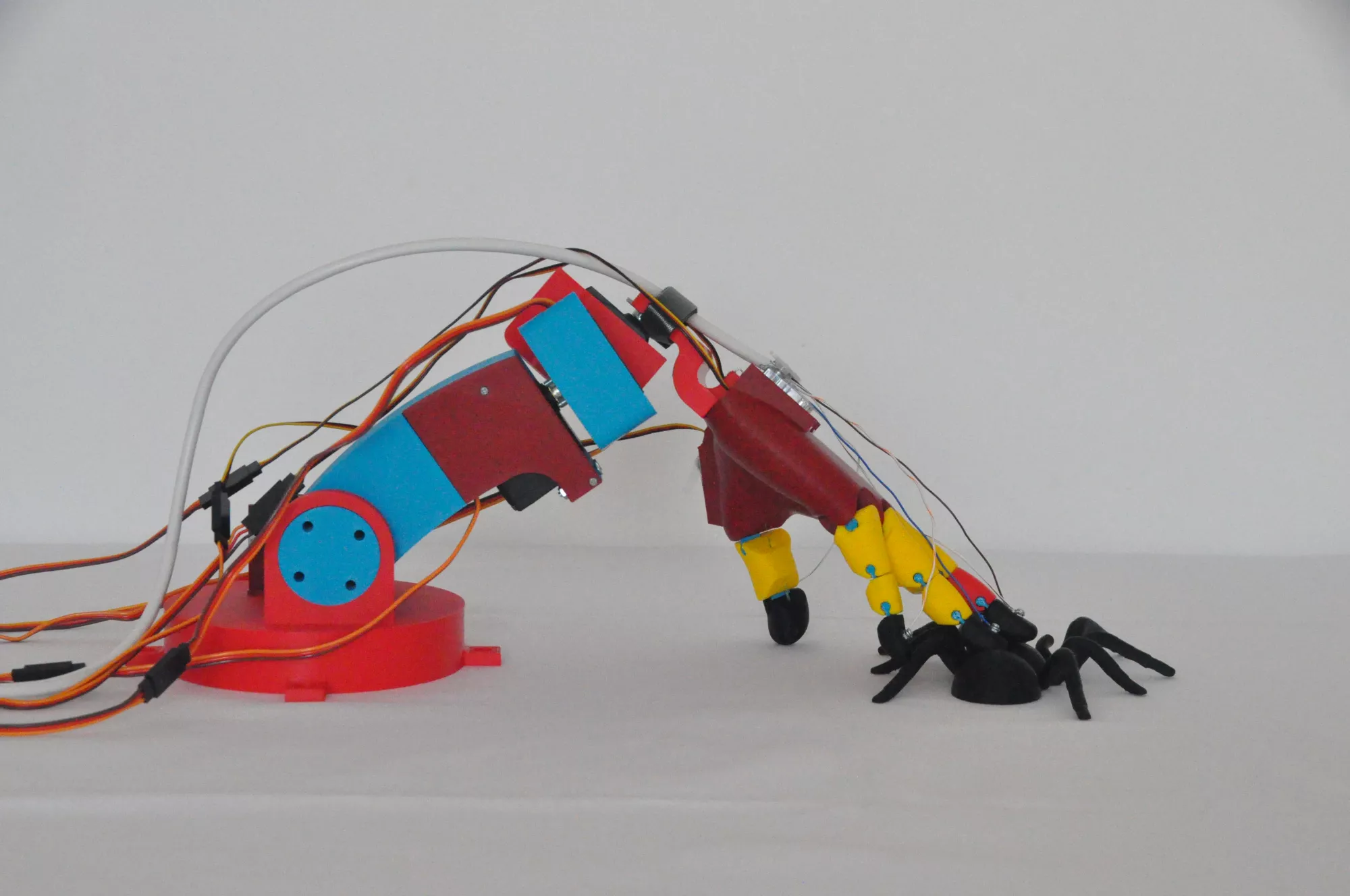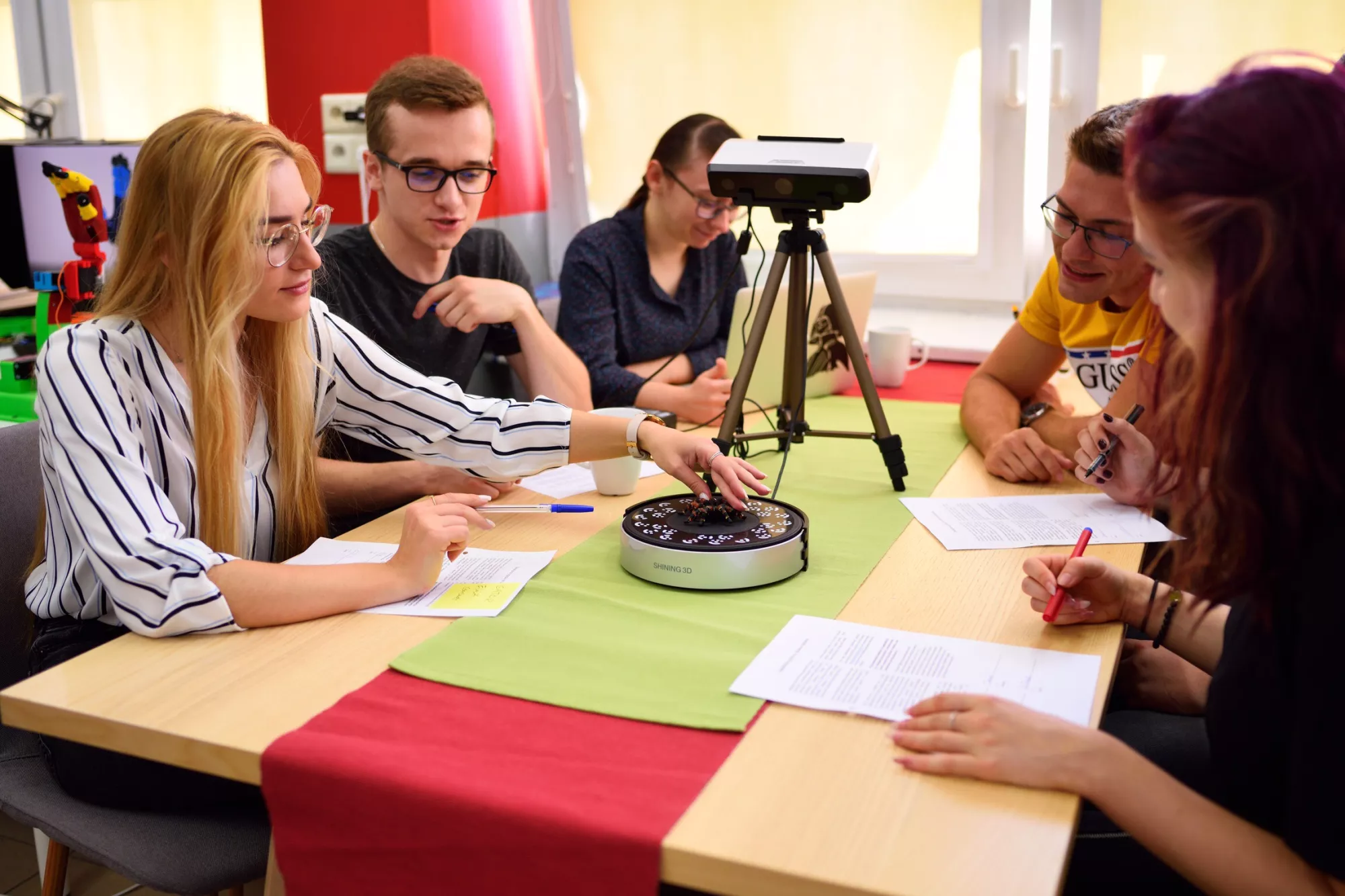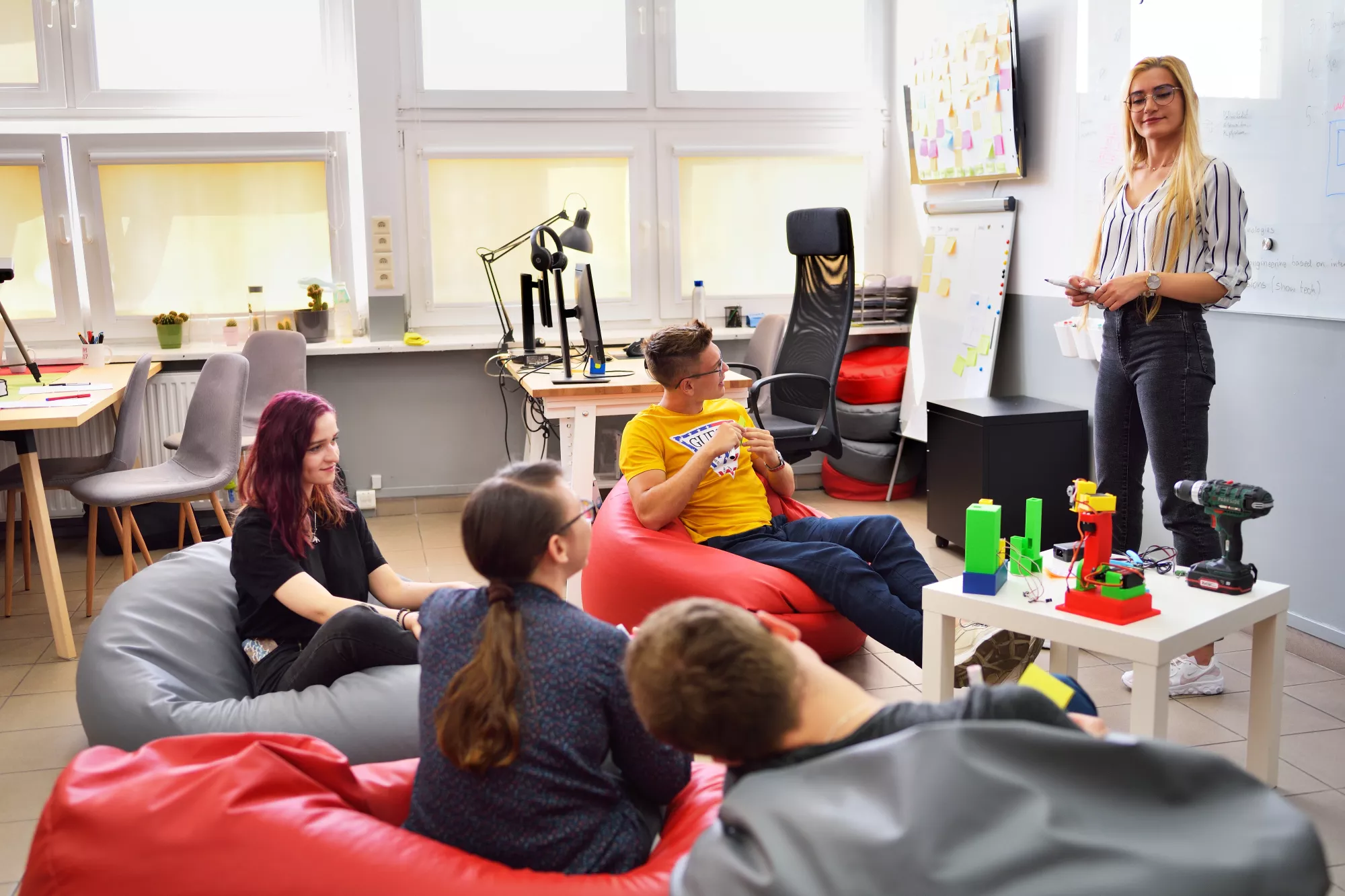Doug Linder once said, "A good programmer is one who always sees two ways before crossing a one-way street." UbiCOMP members combine different paths and fields, striving for technological progress. Natalia Bartłomiejczyk, the chairperson of the student research group, talks about borderless processing performed by TUL students.
When were you founded?
Our research group does not have a long tradition - we have only been operating for 5 years. UbiCOMP was founded by students who, during their studies, during project classes or a mobile semester, noticed that computer science is not just programming. They decided that it was worth supporting people with technology in many areas - both in sports and health, as well as in entertainment or work. There are many options. Our student research group was founded first, and second-degree studies followed - a new field of study - Human-Computer Interaction (HCI), the first of its kind in our part of Europe.
Where does the name come from?
UbiCOMP is an abbreviation of "ubiquitous computing", or borderless processing. The idea is to adapt technology in our environment so that it can be used at any time, from any place, from any device. We are no longer tied to desktop computers - we can use the same application on a smartphone, tablet, or laptop. What's more, hardware becomes unnoticeable, and the user does not pay attention to it. They only use the interface, which is designed to be as natural and intuitive as possible.
What do you do?
We operate in the field of Human-Computer Interaction, which offers many possibilities because it combines technology and its user. We do not focus on one direction. It all depends on the interests of our members. We support various passions with technology: swimming, golf, running, and many others. We also support scientific interests such as cognitive science, psychology in computer science, design, or engineering topics. We can combine all of this with technology, and that is HCI.
Among our inventions is Gapeau - a hat that allows you to maintain a safe distance by assessing it and informing about its lack through light, vibration, and sound signals. We also created SpiderHand, a robotic arm for arachnophobia therapy. The arm is placed in a terrarium - the user has a special sleeve equipped with sensors, with which they control the robotic arm. They can touch the artificial spider and feel it. Another project is a VR game in which you can activate abilities - superpowers - using your mind. When the user relaxes or focuses well, they can use telekinesis or super vision, for example. The game resembles an escape room, from which the user must escape while solving puzzles that require special skills.
Does your research group have sections?

To implement most projects, interdisciplinary teams are needed that can learn from each other. Individual teams include people who deal with different issues - some focus on prototypes because their hobby is electronics, programming, automation, others prefer to deal with human aspects, so they conduct research with users. There are also people who make sure that our projects are presented at the most important international conferences and entered in competitions. It is worth mentioning that since the beginning, we have won 30 medals and published 20 articles. Activities and interests vary, but we do not have specific sections. Groups organize their time and decide how they work.
Why did you join the student research group?
I joined a student research group in the first year of engineering studies, and now I am in the last year of master's studies. I studied computer science, and at that time, I thought I would be creating websites, applications, computer graphics. However, I decided to move from Polish studies to the English equivalent at IFE, i.e., Computer Science. Then I found out that a new UbiCOMP group was being created, so I went to the meeting out of curiosity, and as a result, I signed up and stayed in Polish-language studies.
It is worth noting that computer science is a field that develops and changes very quickly, and there are mainly basic things at the university. It is impossible to include all new technologies or programming languages in classes within 3.5 years. In the group, everyone chooses the direction they want to develop and what new technologies they want to learn. Members support each other and share their experience. Together we try to learn something.
How many members do you have?

We have 30 members. These are not only students of various fields at the Faculty of Electrical, Electronic, Computer and Control Engineering but also other faculties. You can join our group at any time. All you have to do is write us an email or send a message on Facebook or Instagram. We believe that if you don't know something, you will learn. That's what a student research group is for - to gain new skills and discover what you want to do in life.
We have the support of our guardians - Vice-Rector for Education, Assoc. Prof. Andrzej Romanowski, Assoc. Prof. Krzysztof Grudzeń, and Magdalena Wróbel-Lachowska, PhD. Whenever help is needed, you can approach, talk, and get it.
What skills can you gain through your activities?
These are primarily research skills needed in scientific work and technical skills necessary for creating various prototypes. By working in our group, we also develop interpersonal skills, especially since projects are often created in groups. Our members learn how to cope with even the most unpredictable situations, organize their work and time.
In addition to research work, we cooperate with foreign universities (including Harvard) and companies. One of the last projects in which our members are involved is related to senior telecare and is implemented in partnership with one of the Lodz companies. Such cooperation opens us to the labor market. Regardless of the activity in which the members are involved, everyone always learns something or becomes more independent. Everything counts, every achievement.
How has the activity affected graduates?
Our alumni have chosen different career paths, but each of them was influenced by their activity in the UbiCOMP. One of our former members currently works as a User Experience Designer in a company dealing with human health-related technology. She started her adventure with user experience in the research group. She is also involved in mentoring. Another former member focused on an academic career. He is pursuing doctoral studies in Germany and conducts research related to haptic technologies, and occasionally also teaches classes for students of our university. Another former member is a doctoral student at our university. She is a master of 3D printing and creating robots. If someone wanted to learn how to do such things, they would not find a better teacher. It is worth mentioning our graduate who works as a programmer but does not work from a standard office. He is a real digital nomad. He goes to Thailand or Singapore, for example, walks through the jungles, and during working hours, he programs. UbiCOMP is an example of very different career paths and interests.
I used to think that my hobby could not be my job. Now it has changed. I believe that the most important thing is for every student to find what they like, and a student research group should support them in this. I hope that in the future they will be satisfied with the path they have chosen, and their work will bring them joy.
Interview by: Paulina Krygier
Photos: private archive

